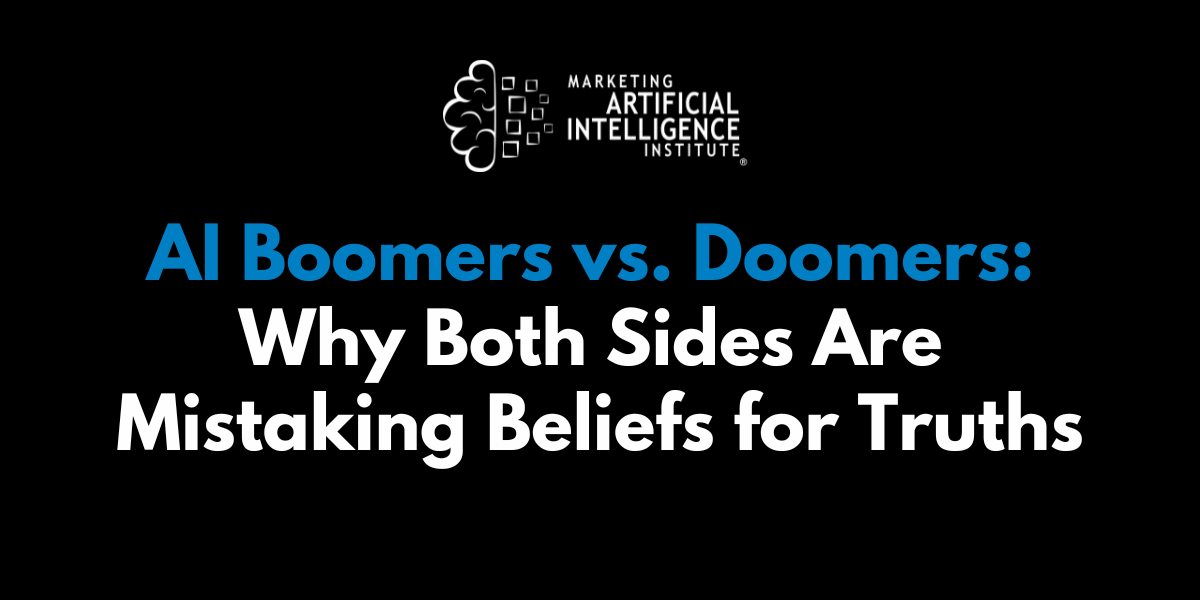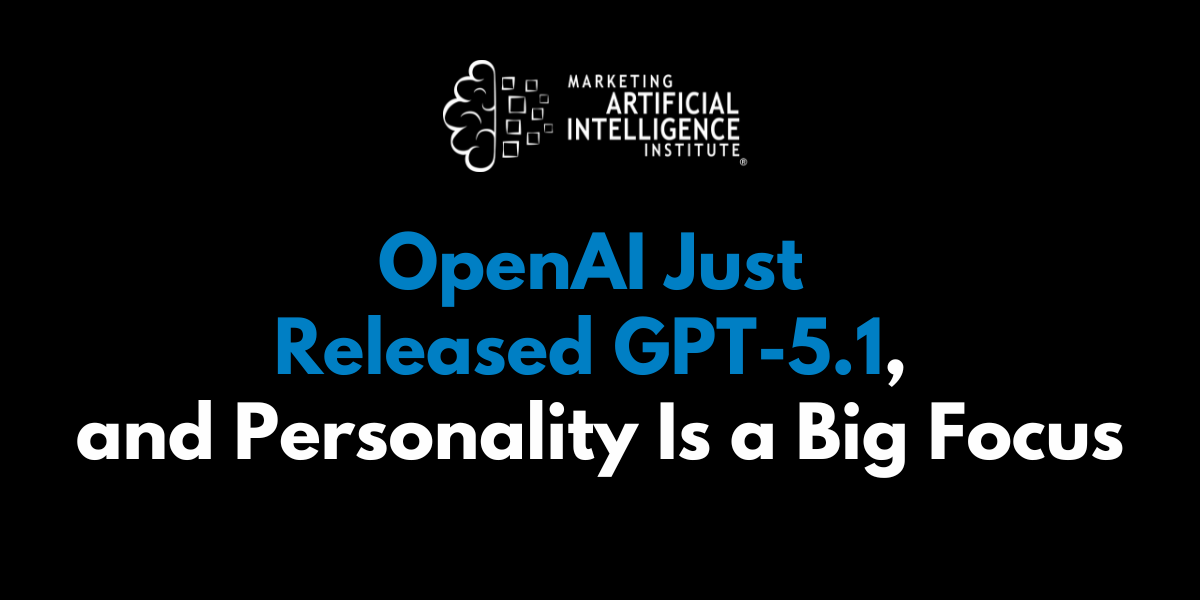Fresh from the feed
Filter by timeframe and category to zero in on the moves that matter.

Interviewer: Jillian York Benjamin Ismail is the Campaign and Advocacy Director for GreatFire , where he leads efforts to expose the censorship apparatus of authoritarian regimes worldwide. He also runs/oversees the App Censorship Project, including the AppleCensorship.com and GoogleCensorship.org platforms, which track mobile app censorship globally. From 2011 to 2017, Benjamin headed the Asia-Pacific desk at Reporters Without Borders (RSF). Jillian York : Hi Benjamin, it's great to chat with you. We got to meet at the Global Gathering recently and we did a short video there and it was wonderful to get to know you a little bit. I'm going to start by asking you my first basic question: What does free speech or free expression mean to you? Benjamin Ismail : Well, it starts with a very, very big question. What I have in mind is a cliche answer, but it's what I genuinely believe. I think about all freedoms. So when you say free expression, free speech, or freedom of information or Article 19, all of those concepts are linked together, I immediately think of all human rights at once. Because what I have seen during my current or past work is how that freedom is really the cornerstone of all freedom. If you don’t have that, you can’t have any other freedom. If you don’t have freedom of expression, if you don't have journalism, you don't have pluralism of opinions—you have self-censorship. You have realities, violations, that exist but are not talked about, and are not exposed, not revealed, not tackled, and nothing is really improved without that first freedom. I also think about Myanmar because I remember going there in 2012, when the country had just opened after the democratic revolution. We got the chance to meet with many officials, ministers, and we got to tell them that they should start with that because their speech was “don’t worry, don’t raise freedom of speech, freedom of the press will come in due time.” And we were saying “no, that’s not how it works!” It doesn’t come in due time when other things are being worked on. It starts with that so you can work on other things. And so I remember very well those meetings and how actually, unfortunately, the key issues that re-emerged afterwards in the country were precisely due to the fact that they failed to truly implement free speech protections when the country started opening. JY: What was your path to this work? BI : This is a multi-faceted answer. So, I was studying Chinese language and civilization at the National Institute of Oriental Languages and Civilizations in Paris along with political science and international law. When I started that line of study, I considered maybe becoming a diplomat…that program led to preparing for the exams required to enter the diplomatic corps in France. But I also heard negative feedback on the Ministry of Foreign Affairs and, notably, first-hand testimonies from friends and fellow students who had done internships there. I already knew that I had a little bit of an issue with authority. My experience as an assistant at Reporters Without Borders challenged the preconceptions I had about NGOs and civil society organizations in general. I was a bit lucky to come at a time when the organization was really trying to find its new direction, its new inspiration. So it a brief phase where the organization itself was hungry for new ideas. Being young and not very experienced, I was invited to share my inputs, my views—among many others of course. I saw that you can influence an organization’s direction, actions, and strategy, and see the materialization of those strategic choices. Such as launching a campaign, setting priorities, and deciding how to tackle issues like freedom of information, and the protection of journalists in various contexts. That really motivated me and I realized that I would have much less to say if I had joined an institution such as the Ministry of Foreign Affairs. Instead, I was part of a human-sized group, about thirty-plus employees working together in one big open space in Paris. After that experience I set my mind on joining the civil society sector, focusing on freedom of the press. on journalistic issues, you get to touch on many different issues in many different regions, and I really like that. So even though it’s kind of monothematic, it's a single topic that's encompassing everything at the same time. I was dealing with safety issues for Pakistani journalists threatened by the Taliban. At the same time I followed journalists pressured by corporations such as TEPCO and the government in Japan for covering nuclear issues. I got to touch on many topics through the work of the people we were defending and helping. That’s what really locked me onto this specific human right. I already had my interest when I was studying in political and civil rights, but after that first experience, at the end of 2010, I went to China and got called by Reporters Without Borders . They told me that the head of the Asia desk was leaving and invited me to apply for the position. At that time, I was in Shanghai, working to settle down there. The alternative was accepting a job that would take me back to Paris but likely close the door on any return to China. Once you start giving interviews to outlets like the BBC and CNN, well… you know how that goes—RSF was not viewed favorably in many countries. Eventually, I decided it was a huge opportunity, so I accepted the job and went back to Paris, and from then on I was fully committed to that issue. JY: For our readers, tell us what the timeline of this was. BI : I finished my studies in 2009. I did my internship with Reporters Without Borders that year and continued to work pro bono for the organization on the Chinese website in 2010. Then I went to China, and in January 2011, I was contacted by Reporters without Borders about the departure of the former head of the Asia Pacific Desk. I did my first and last fact-finding mission in China, and went to Beijing. I met the artist Ai Weiwei in Beijing just a few weeks before he was arrested, around March 2011, and finally flew back to Paris and started heading the Asia desk. I left the organization in 2017. JY: Such an amazing story. I’d love to hear more about the work that you do now. BI: The story of the work I do now actually starts in 2011. That was my first year heading the Asia Pacific Desk. That same year, a group of anonymous activists based in China started a group called GreatFire . They launched their project with a website where you can type any URL you want and that website will test the connection from mainland China to that URL and tell you know if it’s accessible or blocked. They also kept the test records so that you can look at the history of the blocking of a specific website, which is great. That was GreatFire’s first project for monitoring web censorship in mainland China. We started exchanging information, working on the issue of censorship in China. They continued to develop more projects which I tried to highlight as well . I also helped them to secure some funding. At the very beginning, they were working on these things as a side job. And progressively they managed to get some funding, which was very difficult because of the anonymity. One of the things I remember is that I helped them get some funding from the EU through a mechanism called “Small Grants”, where every grant would be around €20- 30,000. The EU, you know, is a bureaucratic entity and they were demanding some paperwork and documents. But I was telling them that they wouldn’t be able to get the real names of the people working at GreatFire, but that they should not be concerned about that because, what they wanted was to finance that tool. So if we were to show them that the people they were going to send the money to were actually the people controlling that website, then it would be fine. And so we featured a little EU logo just for one day, I think on the footer of the website so they could check that. And that’s how we convinced the EU to support GreatFire for that work. Also, there's this tactic called “ Collateral Freedom ” that GreatFire uses very well. The idea is that you host sensitive content on HTTPS servers that belong to companies which also operate inside China and are accessible there. Because it’s HTTPS, the connection is encrypted, so the authorities can’t just block a specific page—they can’t see exactly which page is being accessed. To block it, they’d have to block the entire service. Now, they can do that, but it comes at a higher political and economic cost, because it means disrupting access to other things hosted on that same service—like banks or major businesses. That’s why it’s called “collateral freedom”: you’re basically forcing the authorities to risk broader collateral damage if they want to censor your content. When I was working for RSF, I proposed that we replicate that tactic on the 12th of March—that's the World Day against Cyber Censorship . We had the habit of publishing what we called the “ enemies of the Internet ” report, where we would highlight and update the situation on the countries which were carrying out the harshest repression online; countries like Iran, Turkmenistan, North Korea, and of course, China. I suggested in a team meeting: “what if we highlighted the good guys? Maybe we could highlight 10 exiled media and use collateral freedom to uncensor those. And so we did: some Iranian media, Egyptian media, Chinese media, Turkmen media were uncensored using mirrors hosted on https servers owned by big, and thus harder to block, companies...and that’s how we started to do collateral freedom and it continued to be an annual thing. I also helped in my personal capacity, including after I left Reporters Without Borders. After I left RSF, I joined another NGO focusing on China, which I knew also from my time at RSF. I worked with that group for a year and a half; GreatFire contacted me to work on a website specifically. So here we are, at the beginning of 2020, they had just started this website called Applecensorship.com that allowed users to test availability of any app in any of Apple’s 175 App Stores worldwide They needed a better website—one that allowed advocacy content—for that tool. The idea was to make a website useful for academics doing research, journalists investigating app store censorship and control and human rights NGOs, civil society organizations interested in the availability of any tools. Apple’s censorship in China started quickly after the company entered the Chinese market, in 2010. In 2013, one of the projects by GreatFire which had been turned into an iOS app was removed by Apple 48 hours after its release on the App Store, at the demand of the Chinese authorities. That project was Free Weibo , which is a website which features censored posts from Weibo, the Chinese equivalent of Twitter—we crawl social media and detect censored posts and republish them on the site. In 2017 it was reported that Apple had removed all VPNs from the Chinese app store. So between that episode in 2013, and the growing censorship of Apple in China (and in other places too) led to the creation of AppleCensorship in 2019. GreatFire asked me to work on that website. The transformation into an advocacy platform was successful. I then started working full time on that project, which has since evolved into the App Censorship Project, which includes another website, googlecensorship.org (offering features similar to Applecensorship.com but for the 224 Play Stores worldwide). In the meantime, I became the head of campaigns and advocacy, because of my background at RSF. JY: I want to ask you, looking beyond China, what are some other places in the world that you're concerned about at the moment, whether on a professional basis, but also maybe just as a person. What are you seeing right now in terms of global trends around free expression that worry you? BI : I think, like everyone else, that what we're seeing in Western democracies—in the US and even in Europe—is concerning. But I'm still more concerned about authoritarian regimes than about our democracies. Maybe it's a case of not learning my lesson or of naive optimism, but I'm still more concerned about China and Russia than I am about what I see in France, the UK, or the US. There has been some recent reporting about China developing very advanced censorship and surveillance technologies and exporting them to other countries like Myanmar and Pakistan. What we’re seeing in Russia—I’m not an expert on that region, but we heard experts saying back in 2022 that Russia was trying to increase its censorship and control, but that it couldn’t become like China because China had exerted control over its internet from the very beginning: They removed Facebook back in 2009, then Google was pushed away by the authorities (and the market). And the Chinese authorities successfully filled the gaps left by the absence of those foreign Western companies. Some researchers working on Russia were saying that it wasn’t really possible for Russia to do what China had done because it was unprepared and that China had engineered it for more than a decade. What we are seeing now is that Russia is close to being able to close its Internet, to close the country, to replace services by its own controlled ones. It’s not identical, but it’s also kind of replicating what China has been doing. And that’s a very sad observation to make. Beyond the digital, the issue of how far Putin is willing to go in escalating concerns. As a human being and an inhabitant of the European continent, I’m concerned by the ability of a country like Russia to isolate itself while waging a war. Russia is engaged in a real war and at the same time is able to completely digitally close down the country. Between that and the example of China exporting censorship, I’m not far from thinking that in ten or twenty years we’ll have a completely splintered internet. JY : Do you feel like having a global perspective like this has changed or reshaped your views in any way? BI : Yes, in the sense that when you start working with international organizations, and you start hearing about the world and how human rights are universal values, and you get to meet people and go to different countries, you really get to experience how universal those freedoms and aspirations are. When I worked RSF and lobbied governments to pass a good law or abolish a repressive one, or when I worked on a case of a jailed journalist or blogger, I got to talk to authorities and to hear weird justifications from certain governments (not mentioning any names but Myanmar and Vietnam) like “those populations are different from the French” and I would receive pushback that the ideas of freedoms I was describing were not applicable to their societies. It’s a bit destabilizing when you hear that for the first time. But as you gain experience, you can clearly explain why human rights are universal and why different populations shouldn’t be ruled differently when it comes to human rights. Everyone wants to be free. This notion of “universality” is comforting because when you’re working for something universal, the argument is there. The freedoms you defend can’t be challenged in principle, because everyone wants them. If governments and authorities really listened to their people, they would hear them calling for those rights and freedoms. Or that’s what I used to think. Now we hear this growing rhetoric that we (people from the West) are exporting democracy, that it’s a western value, and not a universal one. This discourse, notably developed by Xi Jinping in China, “Western democracy” as a new concept— is a complete fallacy. Democracy was invented in the West, but democracy is universal. Unfortunately, I now believe that, in the future, we will have to justify and argue much more strongly for the universality of concepts like democracy, human rights and fundamental freedoms. JY : Thank you so much for this insight. And now for our final question: Do you have a free speech hero? BI : No. JY : No? No heroes? An inspiration maybe. BI : On the contrary, I’ve been disappointed so much by certain figures that were presented as human rights heroes…Like Aung San Suu Kyi during the Rohingya crisis, on which I worked when I was at RSF. Myanmar officially recognizes 135 ethnic groups, but somehow this one additional ethnic minority (the Rohingya ) is impossible for them to accept. It’s appalling. It’s weird to say, but some heroes are not really good people either. Being a hero is doing a heroic action, but people who do heroic actions can also do very bad things before or after, at a different level. They can be terrible persons, husbands or friends and be a “human rights” hero at the same time. Some people really inspired me but they’re not public figures. They are freedom fighters, but they are not “heroes”. They remain in the shadows. I know their struggles; I see their determination, their conviction, and how their personal lives align with their role as freedom fighters. These are the people who truly inspire me.

Meta on Tuesday said it has made available a tool called WhatsApp Research Proxy to some of its long-time bug bounty researchers to help improve the program and more effectively research the messaging platform's network protocol. The idea is to make it easier to delve into WhatsApp-specific technologies as the application continues to be a lucrative attack surface for state-sponsored actors and

A structured approach can make any data science project easier to handle. This guide breaks it down into five practical steps to take you from problem definition to results.

"The consensus here is that it would be preferable if you did not die."

You’ve probably already moved some of your business to the cloud—or you’re planning to. That’s a smart move. It helps you work faster, serve your customers better, and stay ahead. But as your cloud setup grows, it gets harder to control who can access what. Even one small mistake—like the wrong person getting access—can lead to big problems. We're talking data leaks, legal trouble, and serious

A Reddit user posted video of his safety driver sleeping at the wheel in San Fransisco.

“The more I listened to it, the more I’m like, something doesn’t sound right,” a person who was briefed on the pilot plans told 404 Media.

Cloudflare is down, causing many websites and big platforms to go dark.

Tycoon 2FA enables turnkey real-time MFA relays behind 64,000+ attacks this year, proving legacy MFA collapses the moment a phishing kit targets it. Learn from Token Ring how biometric, phishing-proof FIDO2 hardware blocks these relay attacks before they succeed. [...]

Today, Microsoft, NVIDIA and Anthropic announced new strategic partnerships. Anthropic is scaling its rapidly growing Claude AI model on Microsoft Azure, powered by NVIDIA, which will broaden access to Claude and provide Azure enterprise customers with expanded model choice and new capabilities. Anthropic has committed to purchase $30 billion of Azure compute capacity and to Read Article

"Defendants have indicated that some video between October 19, 2025 and October 31, 2025 has been irretrievably destroyed and therefore cannot be produced on an expedited basis or at all."

Major Cloudflare outage takes down ChatGPT, Spotify, and X - here's the latest ZDNET

The new million-dollar question for cybersecurity doesn’t have anything to do with fending off the latest type of attack or adopting yet another AI-powered tool.

The debate around artificial intelligence is increasingly splitting into two extreme camps: the “AI boomers” who see only upside, and the “AI doomers” who see only catastrophe.

A new AI app is drawing intense comparisons to the dystopian sci-fi show Black Mirror for its ability to create interactive digital avatars of deceased family members.

OpenAI has released GPT-5.1 , a significant upgrade to its flagship model series designed to make ChatGPT both smarter and more conversational.

Cybersecurity researchers have disclosed details of a cyber attack targeting a major U.S.-based real-estate company that involved the use of a nascent command-and-control (C2) and red teaming framework known as Tuoni. "The campaign leveraged the emerging Tuoni C2 framework, a relatively new, command-and-control (C2) tool (with a free license) that delivers stealthy, in-memory payloads,"

By plugging tens of billions of phone numbers into WhatsApp’s contact discovery tool, researchers found “the most extensive exposure of phone numbers” ever—along with profile photos and more.

In the winter of 2022, as the tech world was becoming mesmerized by the sudden, explosive arrival of OpenAI’s ChatGPT, Benjamin Alarie faced a pivotal choice. His legal tech startup, Blue J , had a respectable business built on the AI of a bygone era, serving hundreds of accounting firms with predictive models. But it had hit a ceiling. Alarie, a tenured tax law professor at the University of Toronto , saw the nascent, error-prone, yet powerful capabilities of large language models not as a curiosity, but as the future. He made a high-stakes decision: to pivot his entire company, which had been painstakingly built over nearly a decade, and rebuild it from the ground up on this unproven technology. That bet has paid off handsomely. Blue J has since quietly secured a $122 million Series D funding round co-led by Oak HC/FT and Sapphire Ventures , placing the company's valuation at over $300 million . The move transformed Blue J from a niche player into one of Canada's fastest-growing legal tech firms, multiplying its revenue roughly twelve-fold and attracting 10 to 15 new customers every day. The company now serves more than 3,500 organizations, including global accounting giant KPMG and several Fortune 500 companies. It is tackling a critical bottleneck in the professional services industry: a severe and worsening talent shortage. The U.S. has 340,000 fewer accountants than it did five years ago , and with 75% of current CPAs expected to retire in the next decade, firms are desperate for tools that can amplify the productivity of their remaining experts. “What once took tax professionals 15 hours of manual research to do can now be completed in about 15 seconds with Blue J,” Alarie, the company's CEO, said in an exclusive interview with VentureBeat. "That value proposition—we can take hours of work and turn it into seconds of work—that is driving a lot of this." When the dean's biography was wrong: the moment that changed everything Alarie vividly remembers January 2023, when the dean of the law school stopped by his office for New Year's greetings. He asked her about ChatGPT and prompted the AI to describe her. ChatGPT confidently generated a biography. Some details were accurate. Others were completely fabricated. "She was like, 'Okay, this is really kind of scary. This is wrong, and this has implications,'" Alarie said. Yet that moment of obvious failure didn't deter him. Instead, it crystallized his conviction. The company's first iteration, launched in 2015, used supervised machine learning to build predictive models that could forecast judicial outcomes on specific tax issues. While technically sophisticated, it had a fundamental flaw: it couldn't answer every tax research question. "The challenge was it couldn't answer every tax research question, which was really the holy grail," Alarie said. Customers loved the tool when it applied to their problem, but would quickly abandon it when it didn't. Revenue plateaued around $2 million annually. Despite ChatGPT's notorious hallucinations, Alarie convinced his board to make the pivot. "I had this conviction that if we continued down that path, we weren't going to be able to address our number one limitation," he said. "Large language models seemed like a very promising direction." He gave his team six months to deliver a working product. From 90-second responses to 3 million queries: How Blue J tamed AI hallucinations By August 2023, Blue J was ready to launch. What they released was, in Alarie's candid assessment, "super janky." The system took 90 seconds to respond. About half the answers had issues. The Net Promoter Score registered at just 20. What transformed that flawed product into today's platform — with response times measured in seconds, a dissatisfaction rate of just one in 700 queries, and an NPS score in the mid-80s — was relentless focus on three strategic pillars. First is proprietary content at massive scale. Blue J secured exclusive licensing with Tax Analysts (Tax Notes) and IBFD , the Amsterdam-based global tax authority covering 220+ jurisdictions. "We are the only platform on earth that takes in the best U.S. tax information from Tax Notes and the best global tax information from IBFD," Alarie said. Second is deep human expertise. Blue J employs tax experts led by Susan Massey , who spent 13 years at the IRS Office of Chief Counsel as Branch Chief for Corporate Tax. Her team constantly tests the AI and refines its performance. Third is an unprecedented feedback flywheel. With over 3 million tax research queries processed in 2025, Blue J is amassing unparalleled data. Each query generates feedback that flows back into the system. Weekly active user rates hover between 75% and 85%, compared to 15% to 25% for traditional platforms. "A charitable ratio is like we're five times more intensively used," Alarie noted. Inside Blue J's early access partnership with OpenAI Blue J maintains an unusually close relationship with OpenAI that has proven crucial to its success. "We have a very good relationship with OpenAI, and we get early access to their models,"Alarie said. "It's quite collaborative. We give them a lot of really high quality feedback about how well different versions of forthcoming models are performing." This feedback proves valuable because Blue J has developed what Alarie calls "ecologically valid" test questions — drawn from actual tax professional queries, with correct answers determined by Blue J's expert team. This helps OpenAI improve performance on complex reasoning tasks. The company tests models from all major providers — OpenAI , Anthropic , Google's Gemini , and open-source alternatives — continuously evaluating which performs best. "We're not necessarily 100% committed to any particular provider," he explained. "We're testing all the time." This approach helps Blue J navigate a challenging business model: charging approximately $1,500 per seat annually for unlimited queries while absorbing variable compute costs. "We've pre-committed to delivering them a really good user experience, unlimited tax research answers at a fixed price," Alarie said. "We're absorbing a lot of that risk." Competition among foundation model providers creates downward pressure on API pricing, while Blue J's conservative usage modeling has proven accurate. Gross revenue retention exceeds 99%, while net revenue retention reaches 130% — considered best-in-class for SaaS businesses. Taking on Thomson Reuters and LexisNexis with 75% weekly engagement Blue J faces competition from established publishers like Thomson Reuters , LexisNexis , and Bloomberg , all of which announced AI capabilities throughout 2023 and 2024. Yet Blue J's engagement metrics suggest it has captured significant momentum, growing from just 200 customers in 2021 to over 3,500 organizations today. The daily updates prove crucial. While the tax code itself changes only when Congress acts, the ecosystem evolves constantly through IRS regulations, new rulings, and court cases. All 50 states modify their tax codes regularly. "Things are changing literally every day," Alarie said. "Every day we're updating the materials, and that's just the U.S. We cover Canada, we cover the UK. The aspirations are truly global for this thing." Alarie's ambitions extend beyond building a successful startup. As author of the award-winning book " The Legal Singularity " and faculty affiliate at the Vector Institute for Artificial Intelligence , he has spent years contemplating AI's long-term impact on law. In academic papers published in Tax Notes throughout 2023 and 2024 , he chronicled generative AI's rise, predicting that "clients will become substantially more sophisticated" and that AI would push human experts toward higher-value strategic roles rather than routine research. Blue J's $122 million plan: From tax research to 'global tax cognition' The Series D funding , which brought total capital raised to over $133 million, will fuel aggressive geographic and product expansion. Blue J already operates in the U.S., Canada, and the U.K., with plans to eventually cover 220+ jurisdictions through its IBFD partnership. Future capabilities could include automated memo generation, tax form completion, document drafting, and conversational history maintaining context across sessions—transforming Blue J from a research tool into what Alarie describes as "the operating layer for global tax cognition." For all its success, Blue J operates in a domain where errors carry serious consequences. The hallucination problem hasn't been eliminated — it's been minimized through careful engineering, content curation, and human oversight. Blue J has trained its models to acknowledge when they cannot answer a question rather than fabricate information. The business also faces economic risks if compute costs spiral or usage patterns exceed projections. And subtler questions loom about professional judgment: as AI systems become more capable, will users defer to outputs without sufficient critical evaluation? From 15 hours to 15 seconds: What Blue J's AI pivot teaches every industry Blue J's transformation offers lessons beyond tax software. The company's willingness to abandon eight years of proprietary technology and rebuild on an initially unreliable foundation required both courage and calculated risk-taking. The decision paid off not because generative AI was inherently superior to supervised machine learning in all dimensions, but because it addressed the right problem: comprehensiveness rather than precision in narrow domains. Tax professionals didn't need 95% accuracy on 5% of questions. They needed good-enough accuracy on 100% of questions. The improvement from an NPS of 20 to 84 in just over two years reflects relentless iteration informed by massive data collection. The content partnerships created differentiation that pure technology couldn't replicate. The team of tax experts provided domain knowledge necessary to ensure reliability. Most fundamentally, Blue J recognized that the real competition wasn't other AI startups or even established publishers. It was the old way of doing things — the 15 hours of manual research, the institutional knowledge locked in retiring professionals' heads. "People are like, 'What does Blue J do? They provide better tax answers. Okay, I think we need that,'" Alarie reflected. As AI transforms profession after profession, that clarity of purpose may matter more than technological sophistication. The future belongs not to those who build the most advanced AI, but to those who most effectively harness it to solve problems humans actually have. For a tax law professor who started with frustration about inefficient research methods, building a $300 million company marks an audacious endpoint. For the thousands of professionals now answering complex questions in 15 seconds instead of 15 hours, it represents the future of their profession, arriving faster than most expected. The bet on ChatGPT when it was still hallucinating biographies has become a validation that sometimes the riskiest move is not to move at all.

Intuit Inks Deal to Spend Over $100 Million on OpenAI Models Bloomberg.com